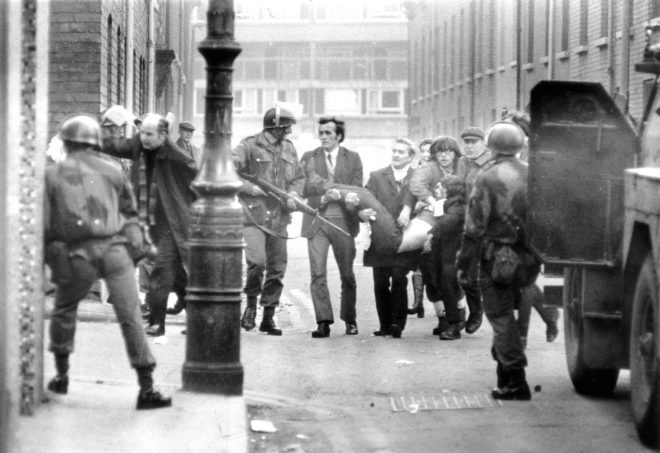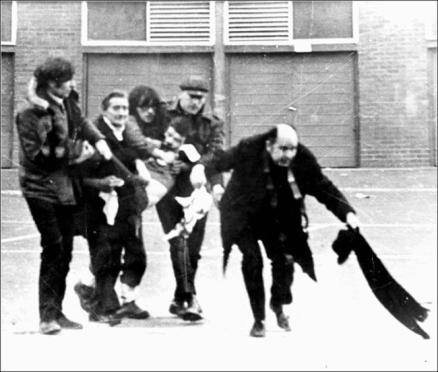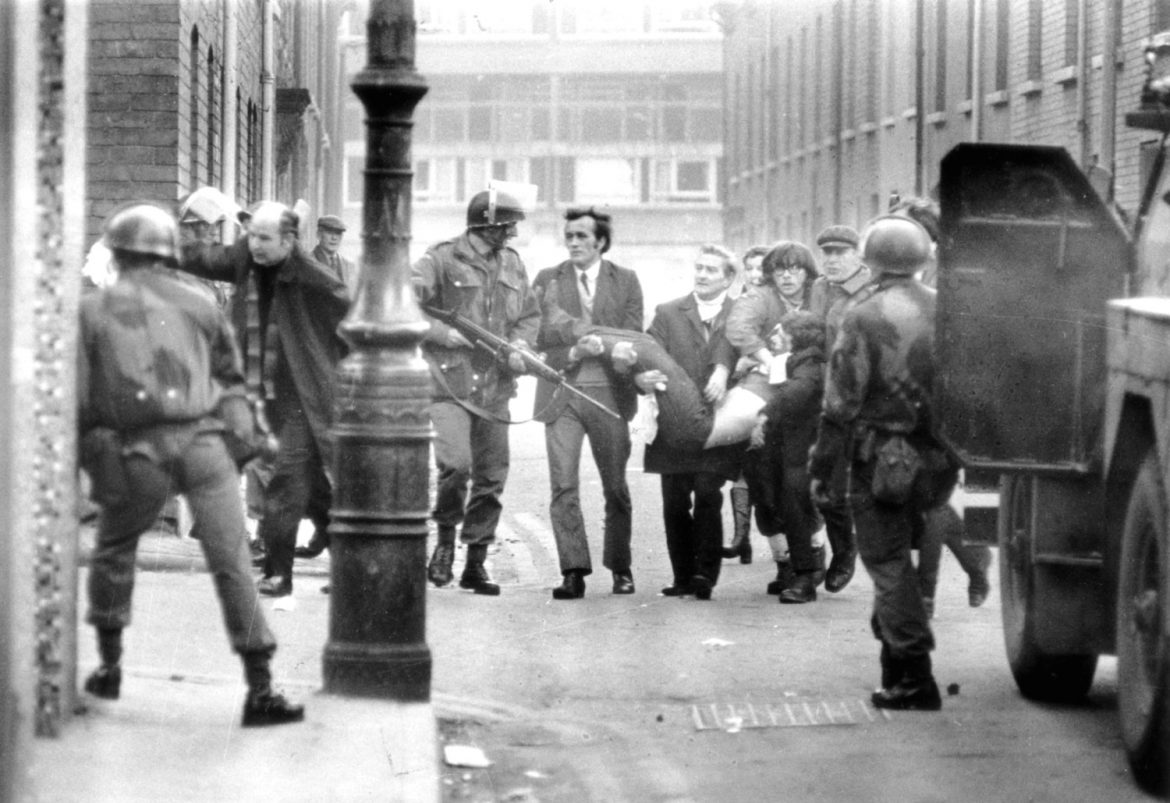 A MAN shot in the face on Bloody Sunday is to be awarded £193,000 in damages, a High Court judge ruled today.
A MAN shot in the face on Bloody Sunday is to be awarded £193,000 in damages, a High Court judge ruled today.
Mr Justice McAlinden ordered the compensation to Michael Quinn for injuries inflicted on him as a schoolboy when soldiers opened fire in Derry in 1972.
The payout also includes recognition of a “cloud of suspicion” which hung over him for decades until a major inquiry established the innocence of all those killed and wounded.
“The conduct of the servants or agents of the government directly responsible for the deaths and injuries on January 30, 1972, and thereafter perpetuating a lie that at least some of those killed and injured on that day had been engaged in significant wrongdoing, clearly constitute oppressive, arbitrary and unconstitutional conduct,” the judge said.
Thirteen people were shot dead by British paratroopers during a civil rights demonstration which became known as Bloody Sunday.
One of the others wounded on the day died later.
In 2010 the Saville Inquiry confirmed all of the victims were innocent, prompting the then Prime Minister David Cameron to publicly apologise for the actions of the soldiers.
Mr Cameron described the killings as “unjustified and unjustifiable”.
Claims have been brought against the Ministry of Defence by those bereaved or wounded.
With liability accepted, three test cases have been selected for arguments on the level of damages.
Now aged 63 and having forged a successful career in banking, Dublin-based Mr Quinn still bears the scars of what happened to him on Bloody Sunday.
In his evidence he recalled being a 17-year-old A-level student who had gone with friends to the Northern Ireland Civil Rights Association march.
But after the army started firing he fled from the Rossville Street area amid growing fears at the unfolding events.
He told of seeing a soldier emerge from behind flats, looking in his direction and place a bullet in the breech of his rifle.
He then crawled and ran into Glenfada Park North in an attempt to take shelter.
While there he saw the body of Michael Kelly, one of those fatally wounded, being carried.
As others began to surge into the area, shouting that soldiers were coming in, Mr Quinn headed, crouched down towards an alley.
He had just made it over a raised area when the bullet hit him.
“It felt like someone had given me a very hard punch to the face,” he told the court.
“Just below my eye I could physically see droplets of blood and bone and skin exploding from my face.”
He continued: “It felt like slow motion as it was happening, I could see also that someone else was falling beside me.

Fr Edward Daly waves a white handkerchief as an injured man is carried away on Bloody Sunday
That man turned out to be James Wray, another of those killed, who had asked Mr Quinn to help carry the civil rights banner earlier in the day.
Mr Quinn managed to stumble on until he was brought to a first aid post and then taken to Altnagelvin Hospital.
The scene in the accident and emergency department was described as something he had only previously seen in footage of medical units in a warzone.
He told of being “terrified” when a priest was brought over to administer the Last Rites because of the extent of his injuries.
Mr Quinn then had to endure the stigma of “guilt by association” until being fully exonerated by Lord Saville’s findings.
His physical injuries were exacerbated by the insult and humiliation of false military insinuations about those killed or wounded by soldiers in Derry in January 1972, the court heard.
Ruling on the claim, Mr Justice McAlinden made awards for general and aggravated damages, as well as injury to his feelings caused by attempts to justify the soldiers’ actions on Bloody Sunday.
But he resisted calls to also compel the defendant to pay punitive, exemplary damages – based on the cost to the government of funding the Saville Inquiry, its unqualified acceptance of the tribunal’s findings, and Mr Cameron’s immediate apology.
“The need for deterrence has not been established, and the cost to the government represents adequate punishment,” he said.
The total £193,000 damages plus costs includes £5,000 to cover facial reconstruction surgery Mr Quinn may undergo in future.
An ex-gratia payment of £3,400 made to him in 1974, with a current day value of nearly £35,000, is also to be taken into account.
Outside court his solicitor, Fearghal Shiels of Madden & Finucane, said: “No amount of money could compensate Mr Quinn for the physical and mental scars that he has carried with him every day since 1972.
“This action, and the apology by David Cameron, was an inevitable consequence of the Saville Report and the unambiguus declaration of innocence of all of the victims of Bloody Sunday.
“Mr Quinn is relieved that this action is now over.”
Tags:





